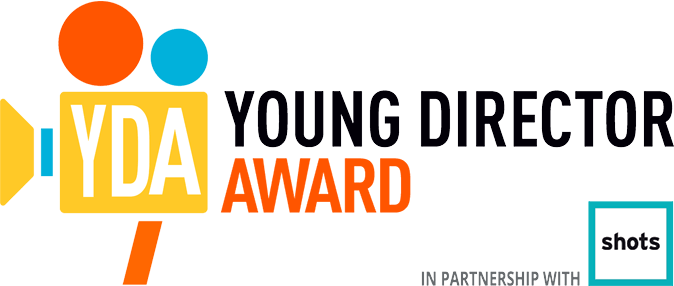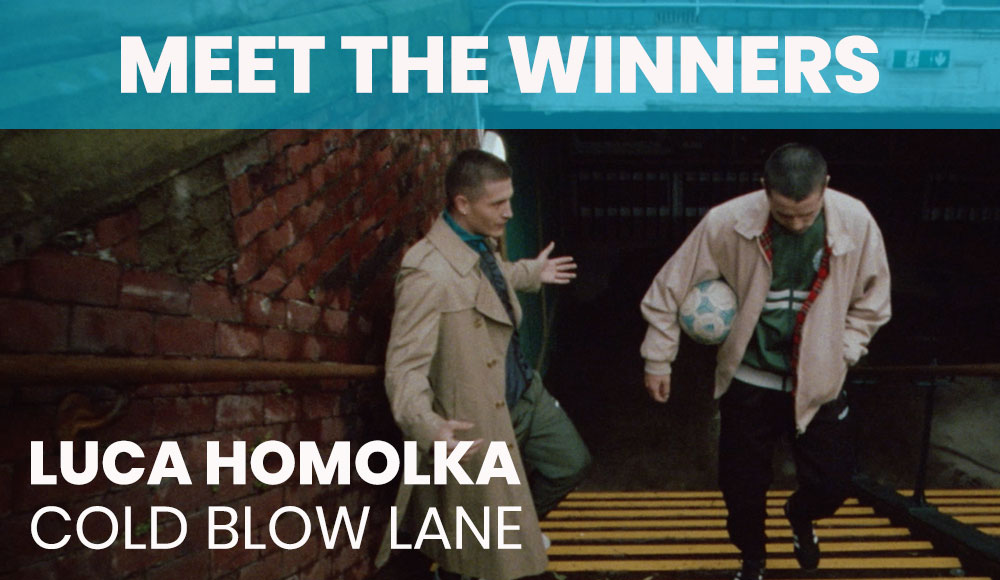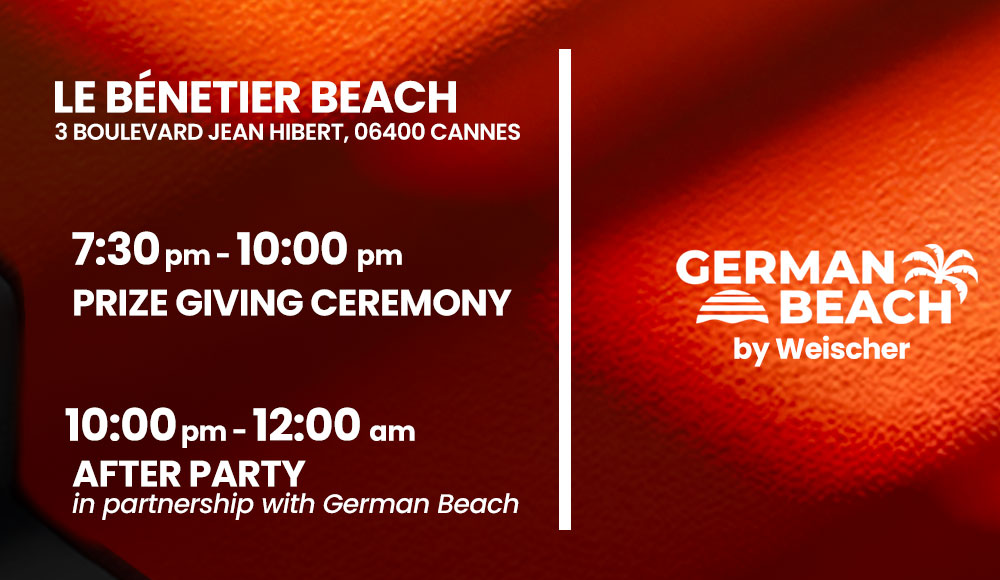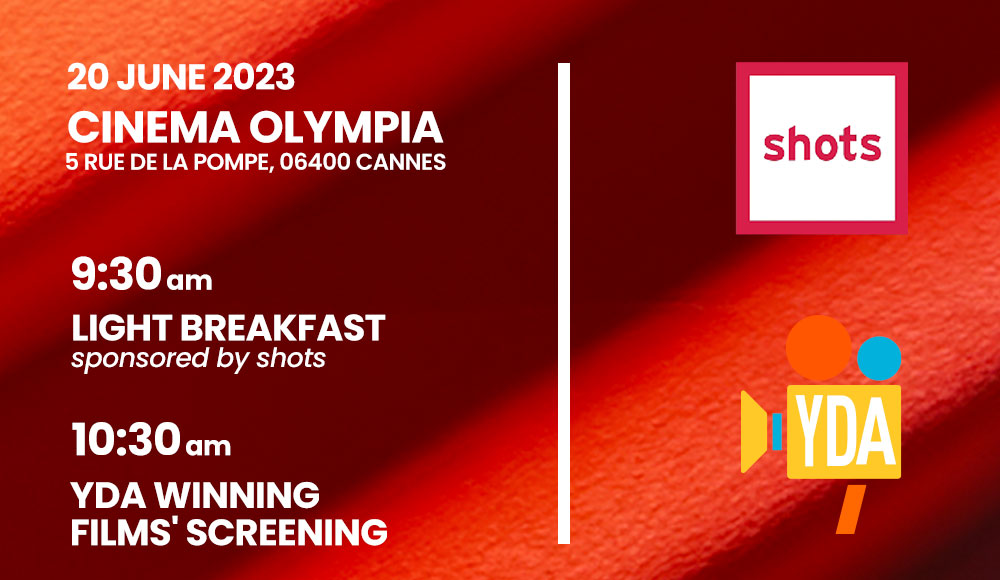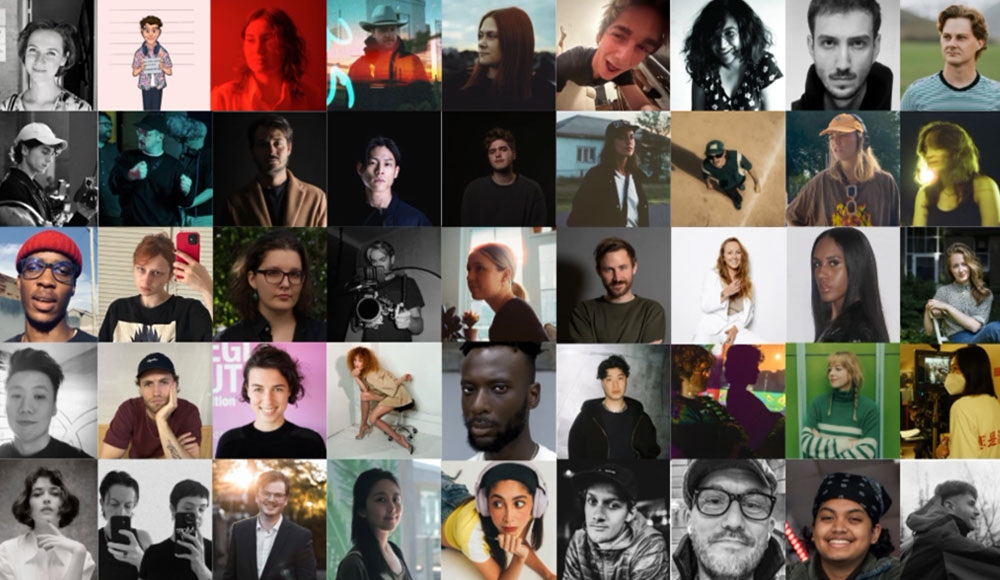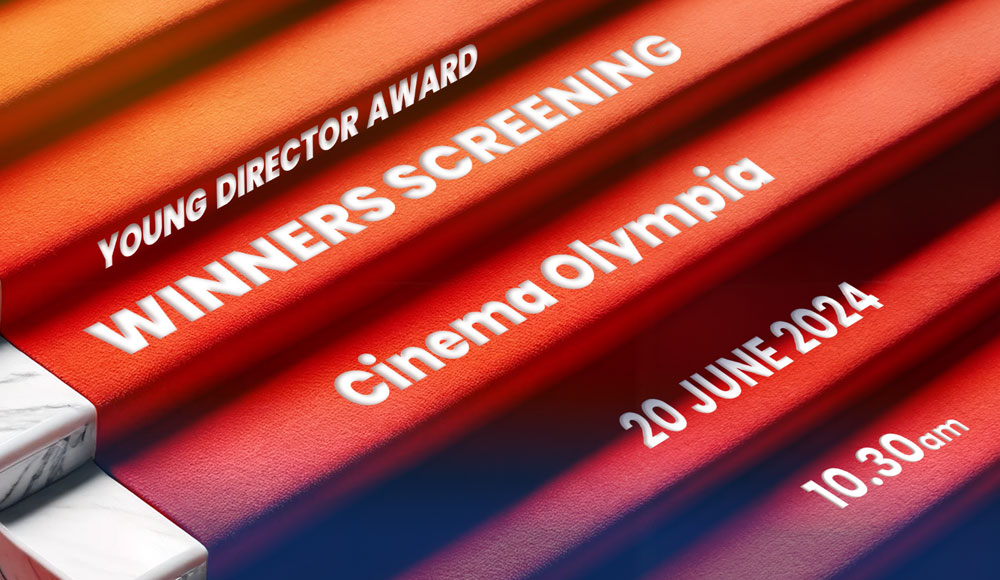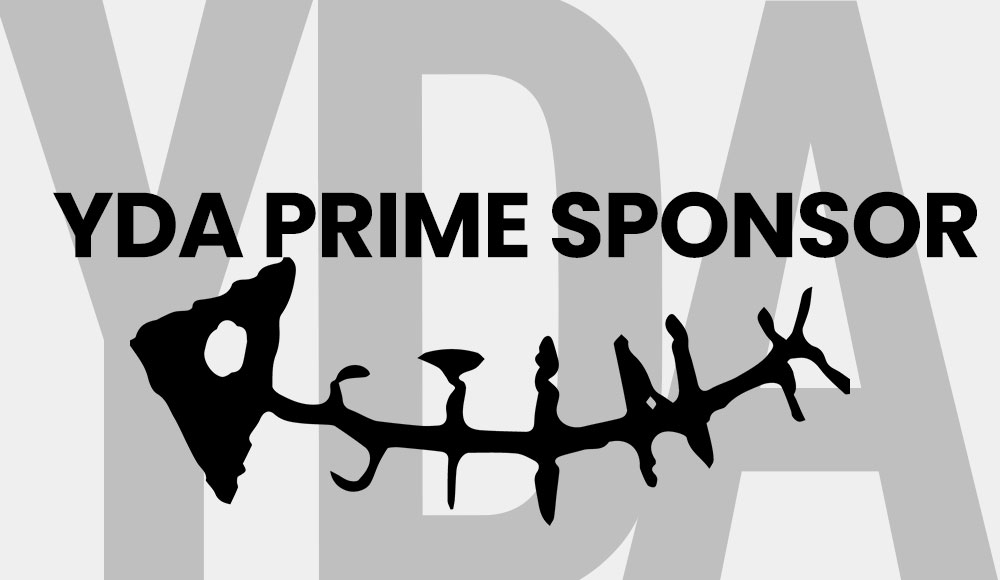Filmakademie director Luca Homolka picked up a Gold Screen in the Film School category for his short film Cold Blow Lane.
Here, he discusses his football background, casual culture and the start of his filmmaking journey.
How did you get into directing?
Before starting my commercial direction studies at the Filmakademie Baden-Württemberg I’ve been a part of several football YouTube shows as a presenter, where we’ve worked with some of the best athletes on the planet. At some point I started bringing my old camera to the shoots and took unscripted photos of the players, literally just so my friends would actually believe that I was working with Ronaldo, Neymar and so on.
Some of the players were interested in the photos and shared them on their Instagram, which consequently lead to my first small photo jobs and later on content/video and then film gigs.
What was the inspiration behind Cold Blow Lane?
Well, as I’ve said before, football has always been a massive part of my life. Getting in touch and learning about the culture and heritage was more of a consequence of my interest, rather than me having to force myself to learn more about it.
Hooligans and the casual culture are a super controversial and probably broadly still misunderstood topic. They‘ve always been portrayed as these violent evil creatures that just run around and vigorously punch civilians, which in most cases has been very far off the truth.
Even in such a short amount of time I wanted to make the group of hooligans feel somehow approachable and thought the best way to do that was to create some sort of visual excerpt out of someones life that you quite abruptly get thrown into, and out off. In the making, I was therefore referencing a lot more to music videos instead of short films that had a more “classical” narrative with a finished plot.
How long was the shoot and what was the most challenging aspect of the project?
We shot for 3 days in Manchester and South Wales with only a couple of prep days prior on location.
Since the vast majority of the crew were fellow co-students, generally setting up the shoot was probably the biggest challenge. For some of us that even meant driving from Ludwigsburg in the south of Germany all the way to the UK.
What have you learned during the process of making the film?
To be honest, while writing, shooting and editing Cold Blow Lane I never had the intention to win awards with it, which probably goes against the current “writing-film-school-films” protocol, I’d say?
I created the project to see if I’d have fun making more narrative films and if I could imagine myself doing longer formats in the future. That put me into a position where I had to put a lot of trust into my own ideas without looking left or right and thinking about what “people would like to see”.
In the end it was a great confirmation to trust my gut and to really cherish the first ideas.
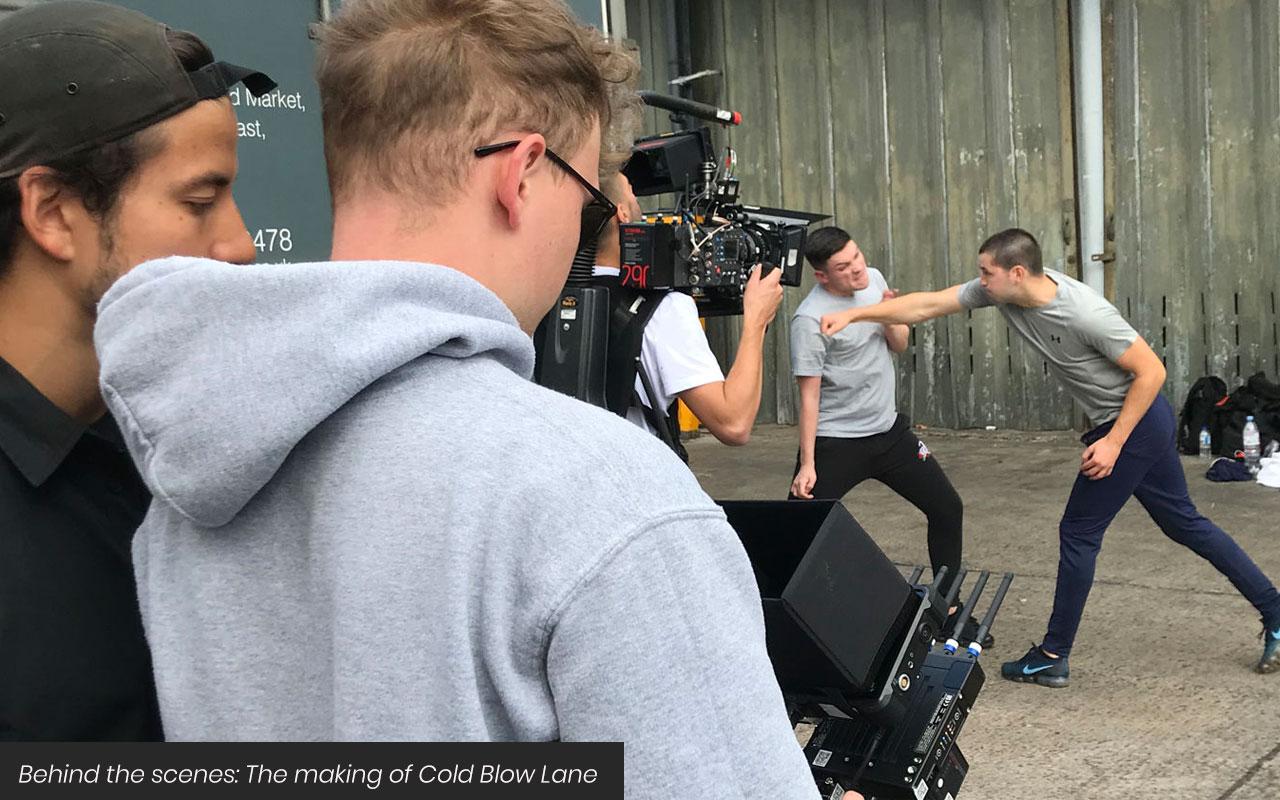
What does it mean to you to win a YDA and what can we expect to see from you in future?
Clearly, winning the YDA is a really big thing and it shows that one might be on the right track. To me it feels like a fertiliser to many opportunities, as it perhaps makes people around you understand a bit quicker that you are really invested into this film thing.
My next films will now obviously have to prove exactly that (even more). In the future I’ll probably aim to find the balance between commercial and longer format films, which may not be as violent and definitely wont just sports films.
Do you plan to work in the advertising industry and if so, what most excites you about that prospect?
I see a career in advertising equally as exciting as in feature films or series projects. The great thing about the times that we live in is that there’s nobody putting a knife to your throat and asking you to decide in which direction you want to continue. The more the formats will cross, the more interesting it will get.
Let’s stay realistic though, it’s a long journey that just began for me and honestly I don’t know where I’ll be in a couple of years, but I’m sure that I wont get bored of all this anytime soon.
Interview by Daniel Huntley shots
